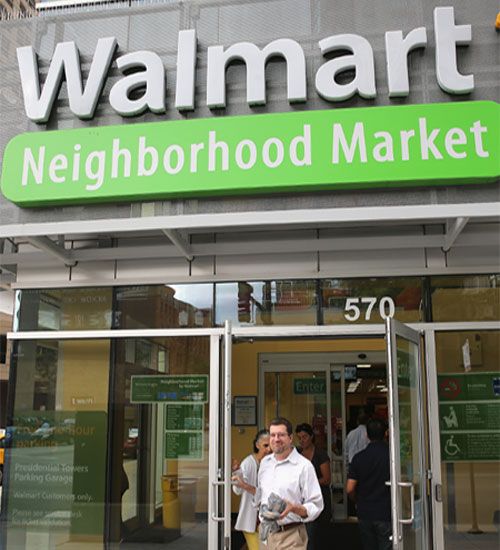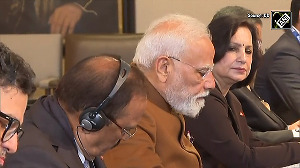US retail major is in talks with Flipkart, Snapdeal, ShopClues and Grofers for partnership.
 American retail major Walmart is learnt to be exploring ways to tie up with leading e-commerce companies of India, including Flipkart, Snapdeal, ShopClues, Grofers and Bigbasket, to tap the growing online retail opportunity, eight years after it entered the country.
American retail major Walmart is learnt to be exploring ways to tie up with leading e-commerce companies of India, including Flipkart, Snapdeal, ShopClues, Grofers and Bigbasket, to tap the growing online retail opportunity, eight years after it entered the country.
While the $486-billion top retail chain of the world had earlier toyed with the idea of entering the online space to sell its products to Indian consumers, it is now actively considering the option.
This comes at a time when the $90-billion American e-commerce giant, Amazon is giving competition to Indian start-ups such as Flipkart, Snapdeal and others.
In a recent interview, Amazon India head Amit Agarwal had told Business Standard the group had an open cheque book and investment would never be a hurdle for India operations.
Walmart and Amazon compete with each other globally, especially in the US, in the online space.
Asked about the group's plans on tieups with e-commerce companies, Rajneesh Kumar, vice-president and head, corporate affairs, Walmart India, said, "Several businesses in the e-commerce space have approached us to become our members and we are processing those requests."
Walmart refers to companies and businesses which buy its products as "members".
No foreign multi-brand retail chain has till now entered into tieups with e-commerce companies in India.
E-commerce companies, including Flipkart, Snapdeal and Grofers, did not comment on whether Walmart was talking to them for potential partnership.
Although the Bentonville-based chain had signed up a joint venture with Sunil Bharti-led Bharti group in 2007, with the intention to enter the fast-growing front-end retail space, it has remained limited to just business-to-business (B2B) operation in the country, both in brick and mortar, and online.
It currently sells to businesses, organisations and educational institutes, but not to individual buyers.
While 100 per cent foreign direct investment (FDI) is permitted in cash-and-carry or wholesale, front-end multi-brand business is guided by a string of complicated rules.
The FDI is capped at 51 per cent in multi-brand retail, thereby making it necessary for a foreign player like Walmart to have an Indian partner.
UK's Tesco is the only other big foreign multi-brand player in India currently; it (in partnership with Tatas) had announced $100 million investment in multi-brand in Maharashtra and Karnataka, two states that permitted FDI in retail at that point. French chain Carrefour exited the country a few months ago, not able to cope with the regulations.
When Walmart had tied up with Bharti eight years ago, FDI was not permitted in multi-brand.
Later in 2012, the United Progressive Alliance government allowed 51 per cent FDI, but with stringent sourcing and investment norms.
The policy also said that every state will decide whether or not it wants to allow foreign retailers.
Even as the group is reported to have lobbied hard for a more liberal FDI regime in multi-brand retail, Walmart had to end its relationship with Bharti in 2013.
The American chain bought Bharti's share of the joint cash-and-carry business but could not expand as it had to comply with Foreign Corrupt Practices Act of the US over possible violations in some markets, including India.
After a gap of three years, Walmart opened its 21st cash-and-carry store in Agra in the middle of 2015.
The current National Democratic Alliance government has not changed the FDI rules in multi-brand retail but it has maintained that it is opposed to foreign investment in the sector, as it was likely to hit employment in neighbourhood mom-and-pop stores, also known as kiranas.
It is believed that owners of mom-and-pop stores, or the trader community, are a significant votebank for the Bharatiya Janata Party, which had a thumping victory in the 2014 Lok Sabha elections.
Walmart India's revenue was down 32 per cent to Rs 2,992.7 crore (Rs 29.92 billion) in the year ended December 2014, according to numbers available with Registrar of Companies.
This was mainly due to no new stores opening through 2013 and 2014. The company's loss was at Rs 232 crore (Rs 2.32 billion) in the same period.
The company is looking at various opportunities to shore up its revenues, including laying greater emphasis, in private label business.
According to reports, it expects 25 per cent of its revenue to come from private labels in about two years.
In other geographies such as the US and UK, private label makes up for a significant chunk of Walmart's revenue.
With online giving intense competition to the traditional retail companies, even big groups like Tatas and Reliance Industries are planning big in e-commerce.
This is despite FDI not being allowed in e-commerce, a reason why most big players (with foreign money coming from marquee investors) operate through the marketplace model.
The government is quiet on the rulebook for online marketplace. In fact, Goldman Sachs has projected that Indian e-commerce will be a $100-billion market by 2020, from a single-digit figure now. Walmart though is not leaving things to chance.
INDIA RUN SO FAR
Walmart signed equal partnership with Bharti group in 2007 to enter India
It operates 21 wholesale or B2B stores in the country
Opened first store in 2009 in Amritsar and 21st in Agra in 2015
It could not expand in India for three years due to compliance issues with FCPA (Foreign Corrupt Practices Act) over possible violations in some markets
Plans 50 B2B stores by 2020, silent on original intention of B2C
Company's online business also restricted to B2B
US chain broke partnership with Bharti in 2013 due to policy hurdles and internal issues
WHY A TIEUP WITH E-COMMERCE FIRMS IS IMPORTANT
If this happens, it will mean people in India are able to access Walmart products through marketplace platforms of e-commerce majors.
As for Walmart, it will be able to reach out without setting up multi-brand brick-and-mortar stores in India or without having its own B2C online operations.










